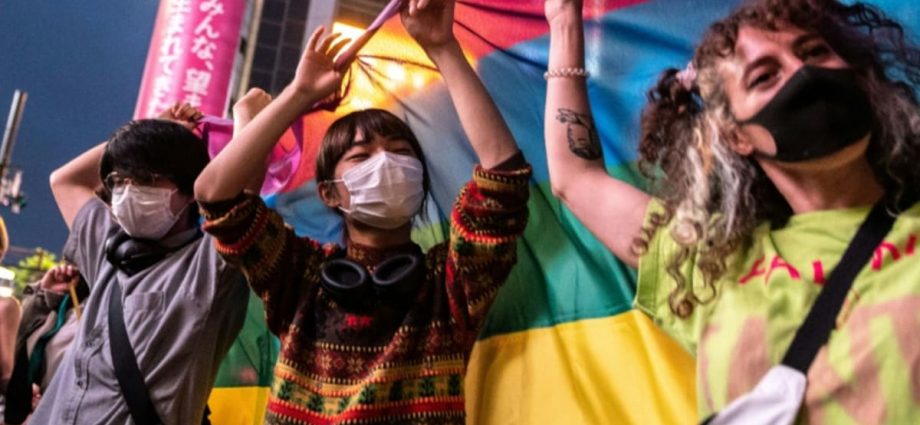
Without a partnership certificate, the couple, who asked to be referred to by their first names, used to tuck a note inside their wallets with the other’s contact details.
“But these were insubstantial, and we felt official documents certified by the local government would be more effective,” Miki said as their grey-and-white cat frolicked in a rainbow necktie.
As of Friday morning, 137 couples had applied for a certificate, Tokyo Governor Yuriko Koike said last week.
Hopes are high that the introduction of the same-sex partnership certificates, which cover both Tokyo residents and commuters, will help fight anti-LGBTQ discrimination in Japan.
“The more people make use of these partnership systems, the more our community will feel encouraged to tell family and friends about their relationships,” without “hiding their true selves”, Miki said.
BEING MORE FLEXIBLE
Recent years have seen Japan – run by a conservative ruling party that espouses traditional family values – take small steps towards embracing sexual diversity.
More firms are now proclaiming support for same-sex marriage, and gay characters feature in TV shows with greater openness.
A 2021 survey by public broadcaster NHK showed 57 per cent of the public was in favour of gay marriage, versus 37 per cent against.
But hurdles remain, with a court in Osaka ruling in June that the country’s failure to recognise same-sex unions was constitutional.
That marked a setback for campaigners in the wake of last year’s landmark verdict by a Sapporo court, which said the current situation violated Japan’s constitutionally guaranteed right to equality.
Prime Minister Fumio Kishida has been cautious about the possibility of legislative changes that would recognise same-sex partnerships on a national level.

